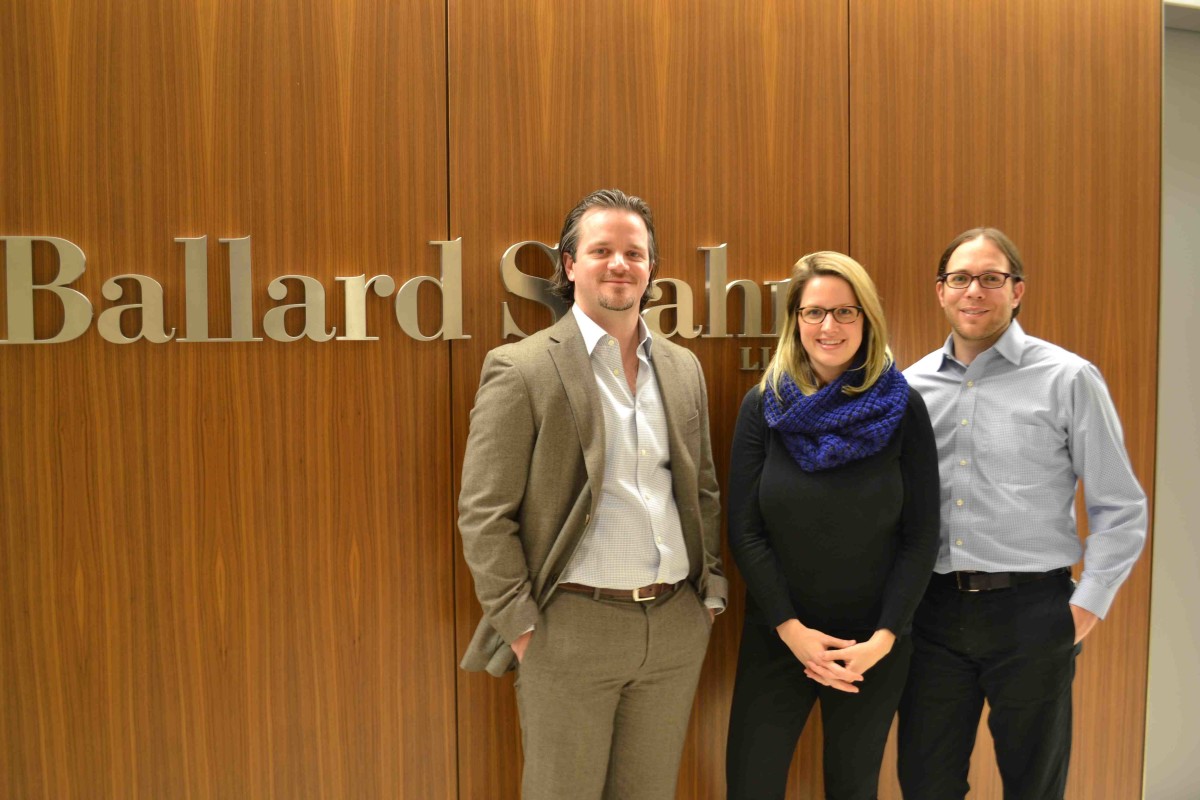When a unicorn like Gopuff lays off more than 10% of its staff in six months or companies that say they’re poised to go public, like HR tech company Phenom, go quiet about those plans, it’s easy to feel nervous.
Philadelphia in particular has seen several bang-up years for venture capital before this. It fared well even through the uncertain first pandemic quarters, and 2021 turned out to be the best year ever for the city, with $8 billion in VC deals. But that wild growth is slowing.
In the second quarter of the year, the US saw a national investment slowdown. Late-stage funding, especially, has lagged, and IPOs continue to be “essentially nonexistent for VC-backed companies in 2022,” the Q2 2022 PitchBook-NVCA Venture Monitor found.
Since the start of 2022, a lot’s changed for growing tech companies. Who will it affect? And should you be worried?
What’s happening with the venture capital market
Generally, the VC market — including how companies determine round sizes and valuations — follows the public market pretty closely. It’s hard news for founders looking for growth capital amid constant conversation about that possible recession headed our way. Even if the US isn’t officially in one now, issues with the supply chain, rising inflation and cost of business paired with the war between Russia and Ukraine make it a challenging time for business owners.
In early 2022, investors were dealing with potentially bloated valuations, with software startups snagging valuations as high as 100 times their annualized revenue, PitchBook reported in January.

A Gopuff haul. (Courtesy photo)
We were in a period where investors got caught up in quick, large deals, as Red and Blue Ventures cofounder Brett Topche said during an investor panel in May. It was common to meet with a company and be expected to make a decision on a deal in a day or two. Investment due diligence was going out the window.
“I hate chasing hype and trends,” he said. “Do I get caught up? Yes. But we review each deal on its own merit.”
But the VC and market slowdown in the last few months means we’re heading into a cooling-off period. It’s possible or even likely that companies that raised last year will have a “down round” where they raise at a lower valuation than their previous round, Greg Seltzer, a startup lawyer and partner at Ballard Spahr, told me.
Startups might use a weighted average anti-dilution protection in a down round to decrease the price at which preferred stock can convert into common stock for its existing investors, Seltzer said: “It’s not death to a startup, it’s protective provisions for prior fundraisers.”
We’ve been here before
Abe Kwon, a partner at Troutman Pepper’s emerging company and venture capital practice, said that while this time period can be concerning, we’ve gone through it time and time again. Companies trying to fundraise through the 2008 recession went through their own boom and bust cycle, as did those in the dot-com era of the early 2000s. There’s been a pretty steady increase in valuations and deal sizes since.

Abe Kwon. (courtesy photo)
Repeat founder Rick Nucci has now worked through the fundraising cycle at a handful of different market points. When he started Boomi in early 2000, the broader economic signals paired with fundraising in the Philly area — not known then for its tech prowess — made for a tough time getting early-stage funding.
“We were valuing these companies on strange things back then,” Nucci said. “Eventually the industry got better, but all of early 2000s was really hard.”
This was a sort of lost period for Philly tech, longtime ecosystem builder Mike Krupit told me this spring.
“The 2000s were dead. We finished with the recession and right after the dot-com crash, there was a focus on real estate and politics. Most of the investors in high tech in Philly were unfamiliar with the space,” Krupit said. “There was no early-stage capital. There was movement toward the West Coast, a lot of healing and licking wounds, but there was nothing of note happening.”
By 2008, when Nucci was looking to raise Boomi’s Series A round, things had improved. But he said he still easily talked to 50 investors, all of whom asked him why he was building outside of the Bay Area. That attitude has since flipped: When his Guru Technologies closed its recent Series C led by Accel, Nucci said the firm had specifically been looking for companies headquartered outside traditional tech hubs.
“That eventually forged certain advantages. But when I was 24 and I started Boomi, there were credibility things, like, ‘Who is this kid?’” Nucci said. “We figured it out, but it was painful.”

Guru cofounders Mitch Stewart (L) and Rick Nucci at Guru’s Center City HQ. (Courtesy photo)
So, what are companies doing in this market?
Kwon said he’s talked to a number of VCs in the last few months and confirmed — yes, fundraising right now is still very possible.
“There’s still deal volume happening. Has it slowed down a bit? Absolutely,” he said. “And valuations have seemed to come down a bit.”
There seems to be a few sentiments about it, he said. Some people think that with the last boom cycle, valuations were skyrocketing so high that the market was overinflated. They see the activity now as a sort of market correction, versus a bust cycle.
And while some might say the last year has been a founder’s market for fundraising and setting valuations because they can raise more while giving less of their company away, others would argue bloated valuations can have a dilutive effect for founders in future down rounds.
How are startups and growth companies faring right now? They’re bracing themselves, cutting costs and hitting pause.
“This situation isn’t Philly centric,” Seltzer said. “We have clients all around the country who are seeing the same reductions proportionally as my Philly clients.”

(Left to right) Ballard Spahr attorneys Terence M. Grugan, Brieanna A. Wheeland and Gregory L. Seltzer. (Courtesy photo)
He noted Gopuff’s most recent layoffs, which cut about 1,500 employees earlier this month to “improve operational efficiencies.” The Callowhill-based company, which is backed by international investor SoftBank, is one of at least 10 companies in the firm’s portfolio that have cut jobs after taking many millions in venture capital.
Layoffs are an unfortunate but common response to companies that aren’t technically profitable coming up against economic struggles internally or externally, Kwon said. It comes down to knowing your runway.
“They have revenue, but it’s eclipsed by their expenses. A lot of that profile of company takes VC funding with the idea that they can take the money at a cost of control and equity, but with the hope it becomes profitable,” Kwon said. “Most experienced entrepreneurs know to always look at that number and raise additional cash before that runway comes to an end. Unfortunately sometimes for the employees, they make the hard decision to extend the runway by doing layoffs.”
Seltzer said that Philly’s lower cost of living and operating has likely helped local companies fare uncertain economic conditions slightly better than other regions, but founders are still heading tentatively or not at all into most major plans right now. Plans to go public, launch a hiring spree or raise a big round are done cautiously.
We see that in Philly unicorn and HR tech company Phenom taking its next moves slowly. Right after it raised a $100 million Series D last year at a $1.4 billion valuation, CEO Mahe Bayireddi said it felt like an IPO was inevitable. As recently as last April, he said that move would likely happen “soon.”
“Going public is definitely a part of that journey, there’s no doubt about it,” he told Technical.ly.

Part of the Philly-area Phenom team as of January 2020. (Courtesy photo)
When we checked in earlier this week, Phenom CFO Davinder Athwal said that as the company continues to expand its product offerings, win new customers and scale the business, an IPO is still “a logical stepping stone on that journey.”
But the exact timing is to be determined, “since we need to manage multiple factors, some of which are outside our control,” he said, citing worldwide financial, geopolitical and supply chain challenges.
Go forth and fundraise
Kwon’s advice to the early-stage founders he works with is to not be alarmed, panicked or caught up in the Twitter threads telling you your startup is doomed.
“Yes, valuations have come down, and deal volume and size have slowed a bit, but whether that will continue is anyone’s game,” he said. “At the moment, companies are still getting funded. Don’t buy into the negative paranoia.”
Seltzer agreed, saying the VC community will remain robust even with lower valuations.
“My VC clients remind me they’re in the business of investing in companies, they have capital, and it’s not achieving the goals of their LPs sitting in a fund,” Seltzer said. “I would tell founders to keep doing the Philly thing — keep bootstrapping for now, if that’s what you’re comfortable with, but it’s possible to raise right now. Valuations might be lower, but the lights will stay on.”
Join the conversation!
Find news, events, jobs and people who share your interests on Technical.ly's open community Slack

Philly daily roundup: Student-made college cost app; Central High is robotics world champ; Internet subsidy expiration looms

Philly daily roundup: Earth Day glossary; Gen AI's energy cost; Biotech incubator in Horsham

Will generative AI replace software developers?



